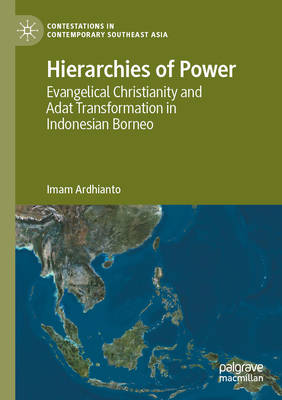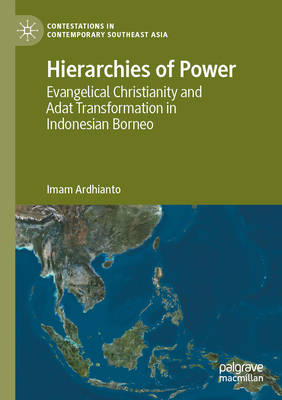
- Retrait gratuit dans votre magasin Club
- 7.000.000 titres dans notre catalogue
- Payer en toute sécurité
- Toujours un magasin près de chez vous
- Retrait gratuit dans votre magasin Club
- 7.000.000 titres dans notre catalogue
- Payer en toute sécurité
- Toujours un magasin près de chez vous
Hierarchies of Power
Evangelical Christianity and Adat Transformation in Indonesian Borneo
Imam ArdhiantoDescription
This book focuses on a Pentecostal-Evangelical Kenyah community in central Borneo, a region that crosses the border between Malaysia and Indonesia. The book argues that the Pentecostal-Evangelical (P/e) mode of religious authority and organization has the capacity to adapt to both the pre-existing hierarchical traditional institution such as Adat and modern egalitarian social forms. It has been necessary within the context of Kenyah's experience of religious change as it enabled many actors from various social classes to obtain and perceive religious authority in a specific local and regional political-religious situation while promoting their identity as egalitarian and autonomous modern subjects. In contrast with other studies on the P/e church that emphasize its egalitarian spirit as a factor that supports its impressive growth, the book contends that its adaptive structural characteristics have enabled the development of this specific Christian denomination to expand rapidly andplay a dominant position in contemporary social life in various parts of the world.
The book thus provides novel findings in the study of religious change in Southeast Asia by enriching the discussion of historical transformation in the region, and analyzing the articulation of global and regional Christian movements, with the socio-political characteristics of Bornean society.
Spécifications
Parties prenantes
- Auteur(s) :
- Editeur:
Contenu
- Nombre de pages :
- 153
- Langue:
- Anglais
- Collection :
Caractéristiques
- EAN:
- 9789811901737
- Date de parution :
- 13-04-23
- Format:
- Livre broché
- Format numérique:
- Trade paperback (VS)
- Dimensions :
- 148 mm x 210 mm
- Poids :
- 213 g







